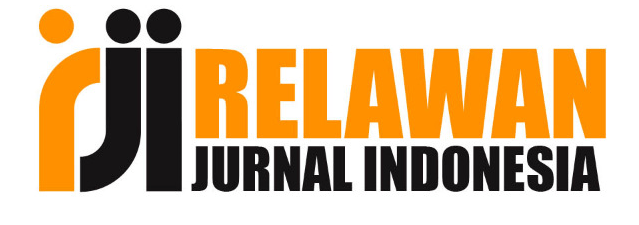EFEKTIVITAS INTERVENSI PSIKO-EDUKASI BERBASIS HEATLH BELIEVE MODEL (HBM) DALAM MENINGKATKAN SELF EFFICACY PENGOBATAN TB MDR
Abstract
ABSTRACT
Background: Multidrug-Resistant (MDR) Tuberculosis (TB) is a global health problem that demands innovative approaches to improve treatment adherence and treatment outcomes. Objectives: This study evaluates the effectiveness of an independent nursing intervention that combines psychological counseling and education based on the Health Belief Model (HBM) on the self-efficacy and treatment compliance of MDR TB patients at Persahabatan Hospital. Method: A quasi-experimental method with a control group design and pre-test post-test was used on a sample of 32 patients, divided into intervention and control groups. Results: showed a significant reduction in non-adherence rates in the intervention group from 19.4% to 9.5%, while the control group experienced an increase from 19.4% to 24.4%. Statistical analysis showed a significant difference between the two groups (AOR = 0.31, 95% CI [0.18-0.53], p<0.001), indicating that the intervention was successful in increasing medication adherence. These findings emphasize the importance of integrating psychosocial approaches in the management of MDR TB to improve treatment adherence. Conclusion: This study provides empirical evidence of the effectiveness of HBM-based interventions in improving self-efficacy and treatment adherence, recommending their adoption in routine TB treatment strategies.
ABSTRAK
Tuberculosis (TB) Multidrug-Resistant (MDR) adalah masalah kesehatan global yang menuntut pendekatan inovatif untuk meningkatkan kepatuhan pengobatan dan hasil pengobatan. Penelitian ini mengevaluasi efektivitas intervensi keperawatan mandiri yang menggabungkan konseling psikologis dan edukasi berbasis Health Belief Model (HBM) terhadap self-efficacy dan kepatuhan pengobatan pasien TB MDR di RSUP Persahabatan. Metode quasi-eksperimental dengan desain kelompok kontrol dan pre-test post-test digunakan pada sampel sejumlah 32 pasien, dibagi menjadi kelompok intervensi dan kontrol. Hasil menunjukkan penurunan signifikan dalam tingkat ketidakpatuhan pada kelompok intervensi dari 19,4% menjadi 9,5%, sementara kelompok kontrol mengalami peningkatan dari 19,4% menjadi 24,4%. Analisis statistik menunjukkan perbedaan yang signifikan antara kedua kelompok (AOR = 0.31, 95% CI [0.18-0.53], p<0.001), menandakan bahwa intervensi berhasil meningkatkan kepatuhan pengobatan. Temuan ini menegaskan pentingnya integrasi pendekatan psikososial dalam pengelolaan TB MDR untuk meningkatkan kepatuhan pengobatan. Penelitian ini memberikan bukti empiris tentang efektivitas intervensi berbasis HBM dalam meningkatkan self-efficacy dan kepatuhan pengobatan, merekomendasikan adopsinya dalam strategi pengobatan TB rutin.
Keywords
Full Text:
PDFReferences
Alene, Kefyalew Addis, Archie C. A. Clements, Emma S. McBryde, Ernesto Jaramillo, Knut Lönnroth, Debebe Shaweno, Amelia Gulliver, and Kerri Viney. 2018. “Mental Health Disorders, Social Stressors, and Health-Related Quality of Life in Patients with Multidrug-Resistant Tuberculosis: A Systematic Review and Meta-Analysis.” Journal of Infection 77(5):357–67.
Gebremariam, Resom Berhe, Maereg Wolde, and Aykerem Beyene. 2021. “Determinants of Adherence to Anti-TB Treatment and Associated Factors among Adult TB Patients in Gondar City Administration, Northwest, Ethiopia: Based on Health Belief Model Perspective.” Journal of Health, Population and Nutrition 40(1):1–10. doi: 10.1186/s41043-021-00275-6.
Juknis TB RO Kemenkes. 2020. Temukan TB Obati Sampai Sembuh PENATALAKSANAAN TUBERKULOSIS RESISTAN OBAT DI INDONESIA.
Parwati, Ni Made, I. Made Bakta, Pande Putu Januraga, and I. Made
Ady Wirawan. 2021. “A Health Belief Model-Based Motivational Interviewing for Medication Adherence and Treatment Success in Pulmonary Tuberculosis Patients.” International Journal of Environmental Research and Public Health 18(24). doi: 10.3390/ijerph182413238.
Tola, Habteyes Hailu, Davoud Shojaeizadeh, Gholamreza Garmaroudi, Azar Tol, Mir Saeed Yekaninejad, Luche Tadesse Ejeta, Abebaw Kebede, Mehrdad Karimi, and Desta Kassa. 2015. “Psychological Distress and Its Effect on Tuberculosis Treatment Outcomes in Ethiopia.” Global Health Action 8(1). doi: 10.3402/gha.v8.29019.
Tola, Habteyes Hailu, Davoud Shojaeizadeh, Azar Tol, Gholamreza Garmaroudi, Mir Saeed Yekaninejad, Abebaw Kebede, Luche Tadesse
Ejeta, Desta Kassa, and Eveline Klinkenberg. 2016. “Psychological and Educational Intervention to Improve Tuberculosis Treatment Adherence in Ethiopia Based on Health Belief Model: A Cluster Randomized Control Trial.” PLoS ONE 11(5). doi: 10.1371/journal.pone.0155147.
Wang, Ying, Xiao Ying Zang, Jinbing Bai, Su Yan Liu, Yue Zhao, and Qing Zhang. 2014. “Effect of a Health Belief Model-Based Nursing Intervention on Chinese Patients with Moderate to Severe Chronic Obstructive Pulmonary Disease: A Randomised Controlled Trial.” Journal of Clinical Nursing 23(9–10):1342–53. doi: 10.1111/jocn.12394.
WHO TB Report. 2022. Global Tuberculosis ReporT 2022.
DOI: https://doi.org/10.52118/edumasda.v9i1.280
Refbacks
- There are currently no refbacks.
Copyright (c) 2025 Dewi Dewi, Fitran Rayasari, Dewi Anggraini, Uswatun Hasanah

This work is licensed under a Creative Commons Attribution-NonCommercial-ShareAlike 4.0 International License.
Sekolah Tinggi Ilmu Kesehatan Kharisma Persada
Pajajaran Street Number 1 Pamulang,
South Tangerang City, Banten Province, Indonesia, 15417
Telephone: 021-74716128 / Handphone : 081384462729

Edu Masda Journal by Sekolah Tinggi Ilmu Kesehatan Kharisma Persada is licensed under a Creative Commons Attribution-ShareAlike 4.0 International License.
Based on a work at http://openjournal.masda.ac.id/index.php/edumasda/index.




